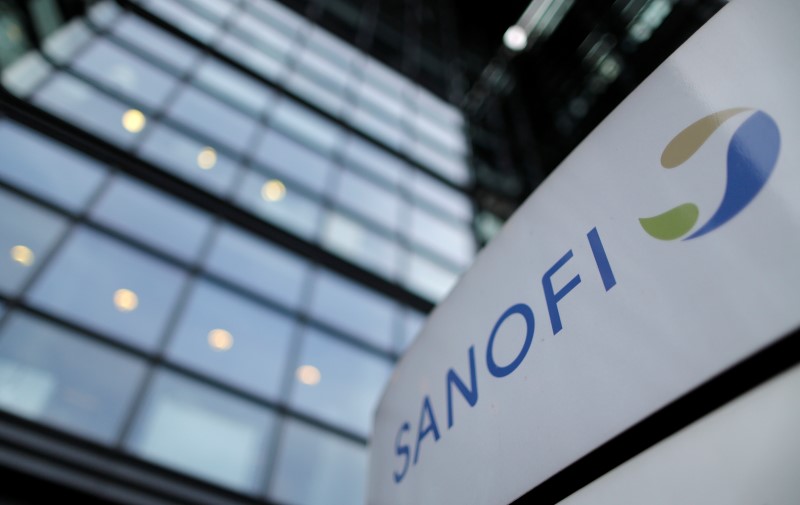By John Geddie and Laura Benitez
LONDON (Reuters/IFR) - Awash with cheap cash, the euro zone's top companies may soon get the same free ride their governments have taken in recent years: investors paying for the chance to lend to them.
The European Central Bank is expected to lay out plans to buy corporate bonds under its quantitative easing scheme on Thursday. That plan could depress borrowing costs already at record lows and see some companies sell debt at negative yields.
While these deals may remain rare, more than a dozen euro zone companies have already seen yields on existing bonds fall below zero.
Yield is an investor's return on a bond - a combination of the regular interest paid and the difference between its sale and redemption price.
Negative-yielding bonds tend to have negligible or zero coupons and are sold at a price higher than that at which they will be redeemed at maturity. Investors in these bonds can only profit if they sell the bond at a higher price to another investor before its expiry.
Two international companies have already sold negative-yielding bonds in Switzerland, where central bank rates are even lower than the euro zone's. And in recent weeks French pharmaceutical firm Sanofi (PA:SASY) and German insurer Allianz (DE:ALVG) ALVG.DE> have, in a rare move, issued bonds that offer no regular interest payments.
This is familiar territory for government bonds. Around $7 trillion (4.86 trillion pound) of such debt carries negative yields, according to JPMorgan (NYSE:JPM). In the euro zone, Germany has sold five-year bonds at negative yields.
"It is all about relative value and even negatively yielding credits can look attractive when compared to core government bonds," said Alex Temple, portfolio manager at ECM, part of Wells Fargo (NYSE:WFC) Asset Management, which manages $480 billion.
ODDITY
In the last few weeks, Sanofi and Allianz have sold bonds with no coupons and a barely positive yield.
But trading in existing bonds shows there is demand for euro zone company debt at sub-zero yields, albeit no firm has yet tried to launch a new bond at these levels.
Bank of America (NYSE:BAC) Merrill Lynch data shows 15 companies, including French utility GDF Suez (PA:ENGIE), German pharmaceuticals firm Bayer (DE:BAYGn) and Belgian telecoms company Belgacom have bonds trading at negative yields.
While there may not be as deep a buyer base for negative-yielding corporate bonds as there is for government bonds which banks must hold for regulatory purposes, analysts say some investors may have few other options.
Funds could be forced to buy these bonds because they have mandates based on companies' credit ratings or whether they are in a bond index. Others may see value in the pick-up to interbank lending rates or government bond yields.
Coca Cola (O:COKE) and a subsidiary of U.S. manufacturer Danaher (N:DHR) in late 2015 issued two-year bonds with sub-zero yields in Switzerland, although they were small in size at just 200 million francs ($208.18 million) and 100 million francs, respectively.
"It is an oddity that you could see euro zone corporate bonds sold at negative yields but I don't see any operational reason why it couldn't happen," Srikanth Sankaran, European credit strategist at Morgan Stanley (NYSE:MS), said.
"Whether this becomes a bigger theme depends on how aggressive the ECB is with its negative rates strategy and its purchase programme."
The ECB has said it will start buying non-financial corporate bonds towards the end of the second quarter of 2016 although it has not specified their share of its 80 billion euros of monthly purchases.
Morgan Stanley estimates the ECB will buy around 3.5 billion a month, and Sankaran said any reference on Thursday to larger volumes or specific targets for corporate borrowing costs could further depress yields and make a negative-yielding bond issue more likely.
Firms are making the most of plunging market rates. Since the ECB said on March 10 it would buy corporate bonds, issuance of investment grade corporate debt has surpassed 42 billion euros -- almost as much as volumes in the year to that point.
But it is not for everyone. Johan Gyllenhoff, group treasurer at Swedish energy firm Vattenfall, cautioned that the "temptation of free money" has to be weighed against the cost of holding excess cash.
Some euro zone banks, trying to pass on the taxes on excess cash charged by the ECB, have started charging companies for debit accounts.
It may take a specific set of circumstances for the first corporate bond to be sold at a negative yield in the euro zone, but in this golden moment for company treasurers, very few are now betting against it.
"We are in uncharted territory so it is difficult to say it is not possible," said Alexandre Caminade, chief investment officer for European credit at Allianz Global Investors.
